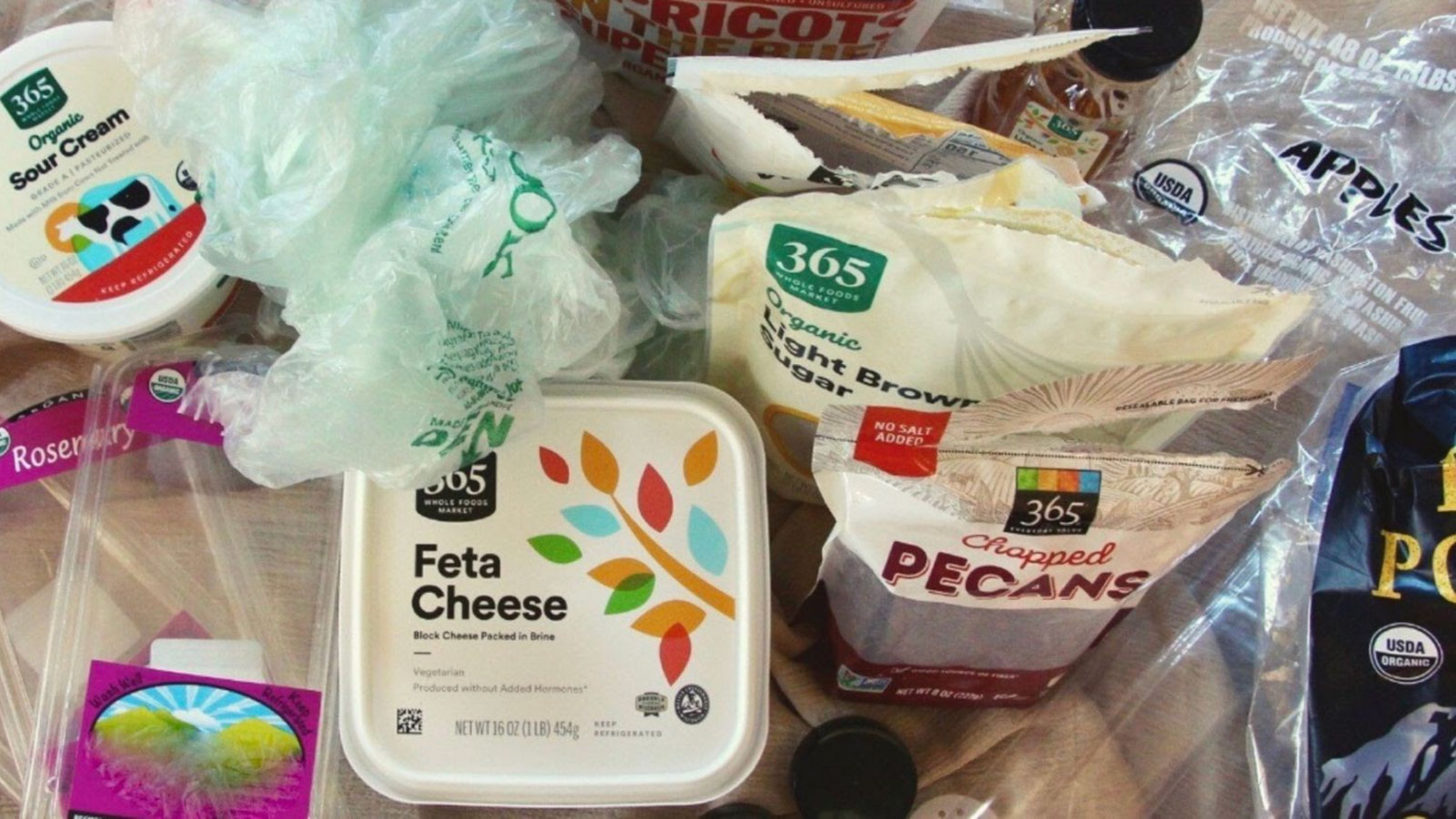
Tell Whole Foods to zero out single-use plastic packaging
Nothing we use for a few minutes should pollute our environment and harm public health for decades.
SIGN THE PETITION
Beyond Plastic Campaign Associate
For me, the worst part of cooking has always been the planning. Finding a recipe, buying the ingredients, measuring them out, and then figuring out what to do with the 18 oz. bottle of oyster sauce after using the single tablespoon I needed in my stir fry. So, you can imagine my delight when I discovered meal kit services that send you a week’s worth of recipes along with the all pre-portioned ingredients, down to the little packet of chili flakes “for taste.” It was exactly the solution I’d been looking for—until my first box arrived, and I realized I would feel guilty ordering another one. The reason? Exorbitant amounts of plastic waste.
Each carrot, tomato and onion was wrapped in its own plastic sleeve, which was rendered totally useless after I washed all of them anyway. I then had to sit with the knowledge that those flimsy bits of plastic, that did nothing to help me in the first place, would pollute our environment for hundreds of years.
This tale, or some version of it, is ubiquitous in our daily lives. We like our products to reach us quickly and with minimal personal effort, so we order them online and end up discarding a pile of plastic every week. Many of us buy plastic bags at the grocery store instead of taking a second to grab a cloth one from home before we head out the door. And for the culinarily-challenged like myself, we readily give up our kitchen-related pains in exchange for heaps of flimsy plastic covering.
Although most people don’t like unsightly bits of plastic flying through streets or floating around on waterways, we live in a society that encourages us to buy & throw without a second thought—all for the sake of convenience. But how much do we really think about the costs our society incurs in order to live “conveniently”?
The Lifecycle of a Single-Use Plastic
The majority of plastic is made from crude oil, which is extracted from the earth through environmentally damaging processes like drilling and fracking. The oil is then transported to a refinery, where it’s chemically converted and refined, emitting noxious gasses in the process. Once in moldable form, the plastic material is fashioned into a bag, or foam peanut, or food container, and ultimately sold to us. We “use” this plastic for a couple of minutes before tossing it. Us aspirational recyclers might place it in the blue bin, in which case it will likely be fished out and tossed in the trash by a sorter at the recycling facility, since only about 9% of plastic waste generated in the U.S. is actually recycled—and we’re only expected to increase that waste production in the upcoming decades.
The majority of single-use plastics live on by clogging landfills, entering our air through incineration, and polluting our communities and oceans. Rather than biodegrading, plastic fragments break down over time into microplastics, which have been found in the most remote parts of the earth (like the bottom of the Mariana Trench, the lowest point of the ocean), as well as in human bodies (it’s estimated that we consume about a credit card’s worth of plastic per week). We don’t fully understand the health effects of this consumption, but it can’t be good.
I don’t know about you, but that all seems a bit steep in exchange for a couple moments of “convenience.” Our country has a plastic problem, and it’s time to turn off the tap. One of the best ways we can stop the overproduction of plastic is by holding manufacturers financially accountable for the plastic they create, rather than passing on those costs to consumers. This would stop the production of at least the most unnecessary plastic.
Sign our petition to tell your U.S. senator to support the Break Free From Plastic Act today, and hold producers responsible for cleaning up their plastic waste.
Started on staff: 2022
B.A., summa cum laude, Phi Beta Kappa, St. Olaf College
Nina works on CALPIRG’s Beyond Plastic campaign, building public support and visibility in order to move California away from single-use plastics. She recently moved to Los Angeles and is getting to know the city one restaurant a time.